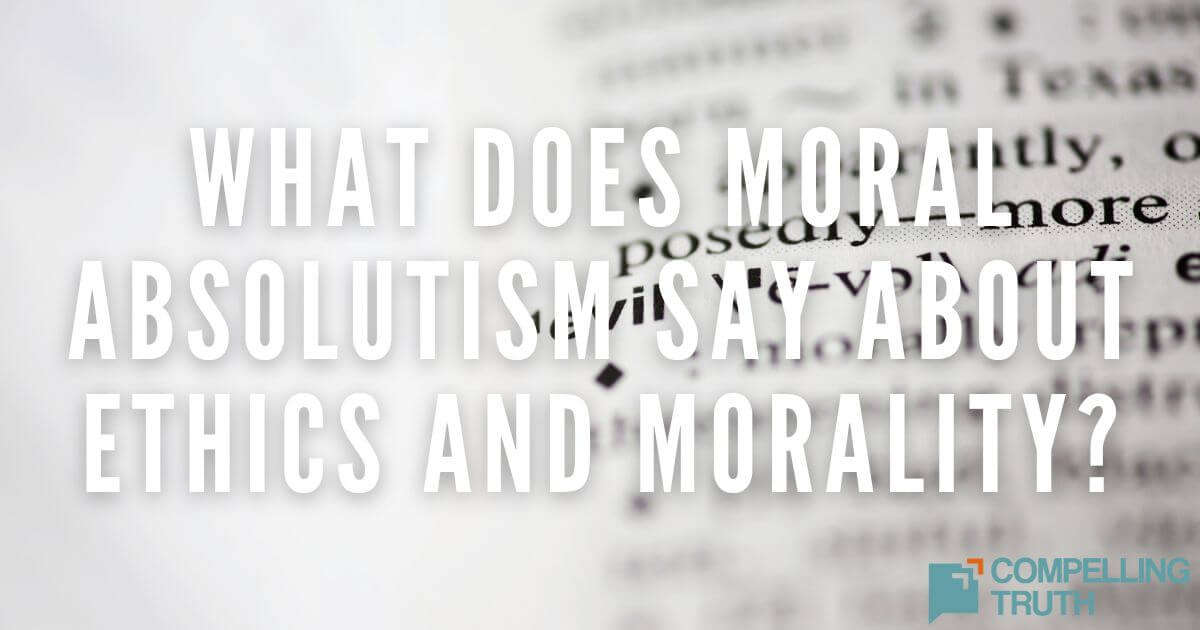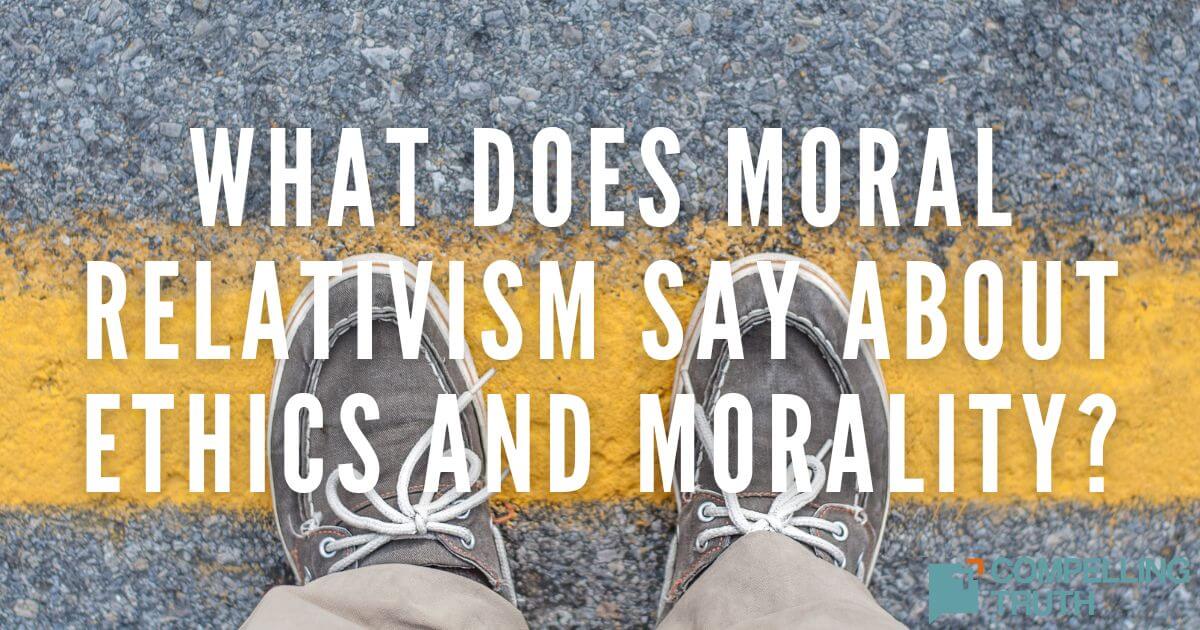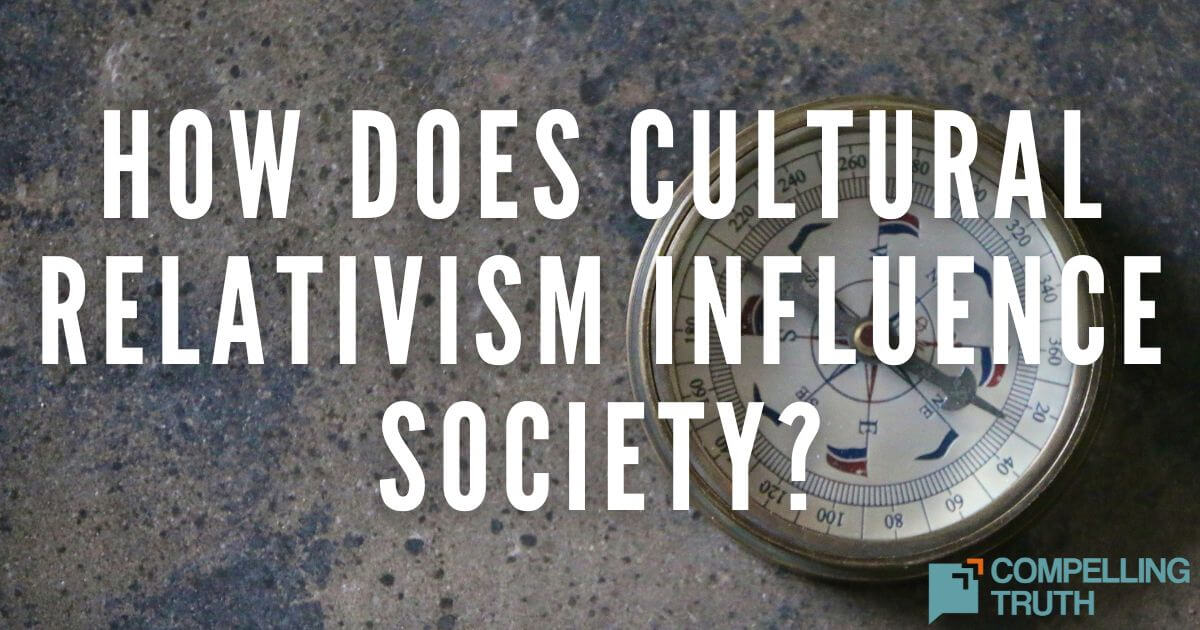Ethical relativism is a major category of normative ethics. It simply teaches that there is no universal standard of morality. There is no act that is always right or wrong for all people at all times. This is not to say that right and wrong do not exist. Instead of a definable standard, morality is based on the culture, the will of the people, careful consideration of scientific advancements, or personal opinion.
CULTURAL RELATIVISM/DESCRIPTIVE RELATIVISM
Cultural or descriptive relativism is not so much a philosophy of ethics as a tool used by anthropologists to study different cultures. It acknowledges that the ethical worldview of each individual is strongly influenced, if not determined, by the culture in which he or she lives. People within their cultures base their morality on cultural norms. Descriptive relativism is not a moral philosophy, per se. Rather, it is an "empirical claim," or a way of interpreting data. It does not rank or judge the ethics of a culture; it merely observes them.
As a theory of morality, cultural relativism is a kind of natural law theory. Instead of analyzing the common nature all humanity shares—despite culture—and deriving morality from that, cultural relativism declares moral whatever standards a particular society lives by. So cannibalism is moral in primitive tribes, infanticide is moral in China, and gay marriage is moral in whichever states declare it legal. This does not mean that cultural mores translate to other people-groups. Just because nudity is accepted in one culture does not mean it is appropriate in another.
PRAGMATIC ETHICS
Pragmatism teaches that we cannot know truth, but we can use careful analysis of scientific discoveries and cultural considerations to determine what will bring the most good. Pragmatic ethics is ever-changing as practitioners endeavor to get closer to what we should be doing. By its very nature, pragmatism is impossible to nail down; its core beliefs prohibit a comprehensive, standardized philosophy to analyze. The core beliefs include:
Fallibilism - mankind is unable to know the truth about the cosmos in any real way; no idea is sacred; every idea may be challenged, refined, or abandoned based on the introduction of further advances in science or logic
Modeling - every analysis of reality is done through the use of models—metaphoric representations of reality that reflect reality in some way and may be able to help us infer future events
Utilitarianism - the worth of an idea is based on its ability to solve problems; truth, emotional comfort, and subjectivity mean nothing
Experience - empirical knowledge is a fallacy; we cannot prove anything based on what we experience, but we can use models based on those experiences to bring us closer to a description of reality
Pragmatists cannot agree on the simplest notions, like the definition of "truth." Some say it is simply what "works" for this particular environment (although there are differing opinions on what "works" refers to). Some say it is the result of analysis taken to its ultimate conclusion, which we can never know because we will never know when we have reached the ultimate conclusion. Others say truth does not exist and we shouldn't worry about it.
Even these core beliefs are not universal; pragmatists, in the spirit of their worldview, can and do redefine "truth," "reality," "experience," and any number of other basics at will. With the core beliefs and the core definitions in such constant flux, determining an absolute pragmatic morality is impossible. Continued analysis of morality, in addition to continued scientific discovery, will lead us closer to a moral standard, but we can never know what morality really is, let alone what absolute standards it may include.
MORAL RELATIVISM
Ethics define the behavior standards of a society or people-group; morals do the same for an individual. Moral relativism is similar to deontology, although instead of an act earning or losing morality based on duty, an act's morality is simply based on whether or not it adheres to a given ethics framework. "Framework" is not directly defined. It could refer to cultural norms, a moral code, or personal beliefs. As a result, moral relativism teaches that it is inappropriate to judge another's personal morality.
The Bible teaches that ethics do not change, although the laws reflecting those ethics may. The Gentile believers were not expected to follow the laws of Jewish culture (Acts 15:19-20), although they were still required to be set apart as God's people (Romans 12:2). Regulations regarding the roles of women or musical instruments have waxed and waned over the centuries, but church gatherings are still to be marked by order (1 Corinthians 14:33). And we are called to develop the maturity to make decisions for ourselves (Hebrews 5:12-14) as long as those decisions promote the Gospel (1 Corinthians 9:20-23).
Christian ethics has something that relativism absolutely rejects—a given, known, absolute standard against which all laws and behavior are to be measured. We are always called to honor God with our actions and speech. We are always called to be kind to each other. We are always called to respect civil authority. How that looks in daily practice may change. The Jews honored God by observing strict dietary regulations; Gentiles honor Him by giving thanks for all food (Acts 10:15). Sometimes kindness looks like a glass of water (Matthew 25:34-40); sometimes it means church discipline (Matthew 18:15-20). But ethical behavior always reflects the basics: love God, love others (Matthew 22:37-40). And that will never change.
CULTURAL RELATIVISM/DESCRIPTIVE RELATIVISM
Cultural or descriptive relativism is not so much a philosophy of ethics as a tool used by anthropologists to study different cultures. It acknowledges that the ethical worldview of each individual is strongly influenced, if not determined, by the culture in which he or she lives. People within their cultures base their morality on cultural norms. Descriptive relativism is not a moral philosophy, per se. Rather, it is an "empirical claim," or a way of interpreting data. It does not rank or judge the ethics of a culture; it merely observes them.
As a theory of morality, cultural relativism is a kind of natural law theory. Instead of analyzing the common nature all humanity shares—despite culture—and deriving morality from that, cultural relativism declares moral whatever standards a particular society lives by. So cannibalism is moral in primitive tribes, infanticide is moral in China, and gay marriage is moral in whichever states declare it legal. This does not mean that cultural mores translate to other people-groups. Just because nudity is accepted in one culture does not mean it is appropriate in another.
PRAGMATIC ETHICS
Pragmatism teaches that we cannot know truth, but we can use careful analysis of scientific discoveries and cultural considerations to determine what will bring the most good. Pragmatic ethics is ever-changing as practitioners endeavor to get closer to what we should be doing. By its very nature, pragmatism is impossible to nail down; its core beliefs prohibit a comprehensive, standardized philosophy to analyze. The core beliefs include:
Fallibilism - mankind is unable to know the truth about the cosmos in any real way; no idea is sacred; every idea may be challenged, refined, or abandoned based on the introduction of further advances in science or logic
Modeling - every analysis of reality is done through the use of models—metaphoric representations of reality that reflect reality in some way and may be able to help us infer future events
Utilitarianism - the worth of an idea is based on its ability to solve problems; truth, emotional comfort, and subjectivity mean nothing
Experience - empirical knowledge is a fallacy; we cannot prove anything based on what we experience, but we can use models based on those experiences to bring us closer to a description of reality
Pragmatists cannot agree on the simplest notions, like the definition of "truth." Some say it is simply what "works" for this particular environment (although there are differing opinions on what "works" refers to). Some say it is the result of analysis taken to its ultimate conclusion, which we can never know because we will never know when we have reached the ultimate conclusion. Others say truth does not exist and we shouldn't worry about it.
Even these core beliefs are not universal; pragmatists, in the spirit of their worldview, can and do redefine "truth," "reality," "experience," and any number of other basics at will. With the core beliefs and the core definitions in such constant flux, determining an absolute pragmatic morality is impossible. Continued analysis of morality, in addition to continued scientific discovery, will lead us closer to a moral standard, but we can never know what morality really is, let alone what absolute standards it may include.
MORAL RELATIVISM
Ethics define the behavior standards of a society or people-group; morals do the same for an individual. Moral relativism is similar to deontology, although instead of an act earning or losing morality based on duty, an act's morality is simply based on whether or not it adheres to a given ethics framework. "Framework" is not directly defined. It could refer to cultural norms, a moral code, or personal beliefs. As a result, moral relativism teaches that it is inappropriate to judge another's personal morality.
The Bible teaches that ethics do not change, although the laws reflecting those ethics may. The Gentile believers were not expected to follow the laws of Jewish culture (Acts 15:19-20), although they were still required to be set apart as God's people (Romans 12:2). Regulations regarding the roles of women or musical instruments have waxed and waned over the centuries, but church gatherings are still to be marked by order (1 Corinthians 14:33). And we are called to develop the maturity to make decisions for ourselves (Hebrews 5:12-14) as long as those decisions promote the Gospel (1 Corinthians 9:20-23).
Christian ethics has something that relativism absolutely rejects—a given, known, absolute standard against which all laws and behavior are to be measured. We are always called to honor God with our actions and speech. We are always called to be kind to each other. We are always called to respect civil authority. How that looks in daily practice may change. The Jews honored God by observing strict dietary regulations; Gentiles honor Him by giving thanks for all food (Acts 10:15). Sometimes kindness looks like a glass of water (Matthew 25:34-40); sometimes it means church discipline (Matthew 18:15-20). But ethical behavior always reflects the basics: love God, love others (Matthew 22:37-40). And that will never change.



